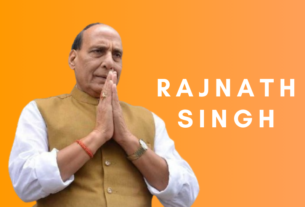In India’s vast and competitive e-commerce space, where giants compete for ultra-fast deliveries and urban dominance, CityMall has carved its own niche. Instead of focusing on 10-minute deliveries and expensive logistics for metro cities, CityMall chose the path less traveled—building a value-first platform for Tier II, III, and IV towns. Founded in 2019, CityMall’s story is not just about growth—it’s about understanding Bharat, earning trust, and scaling with purpose.
The Founding Vision: Serving Bharat, Not Just India
CityMall was founded by IIT alumni Angad Kikla, Naisheel Verdhan, and Rahul Gill, who identified a glaring gap in the market. While mainstream e-commerce platforms like Amazon, Flipkart, and quick-commerce players such as Blinkit focused on metro and Tier I cities, the vast Bharat market remained underserved.
The founders envisioned a community-driven e-commerce model, combining affordability, trust, and local empowerment. Instead of relying on impersonal apps, CityMall built a network of micro-entrepreneurs called community leaders who connected with customers through WhatsApp. These leaders took orders, ensured last-mile delivery, and created a sense of familiarity for rural and semi-urban consumers.
For people living in small towns, this model was revolutionary. It brought online shopping closer to their comfort zone, leveraging trust and word-of-mouth rather than aggressive advertising.
Early Challenges: Convincing Investors & Building Trust
The initial years were anything but easy. Convincing investors that Bharat was the future of e-commerce required more than just a pitch deck. Many doubted whether low-income households would adopt online buying or whether logistics could remain profitable at scale.
But CityMall persisted. The founders stuck to a lean and frugal strategy, focusing on three key pillars:
- Curated assortment – CityMall offered a limited range of essential SKUs, keeping inventory costs low while meeting core household needs.
- Next-day delivery – Unlike quick-commerce players promising 10-minute delivery, CityMall prioritized cost efficiency over speed.
- Zero delivery fees – By optimizing routes and leveraging community leaders, the company eliminated delivery charges, making online shopping even more attractive for value-conscious consumers.
Gradually, the model began to work. Consumers spending ₹450–₹500 per order found CityMall’s combination of affordability and trust far more relevant than flashy delivery promises.
Growth Story: From ₹15 Cr to ₹460 Cr in 3 Years
CityMall’s growth trajectory is nothing short of spectacular. Revenue jumped from ₹15.2 crore in FY21 to ₹459 crore in FY24—a 21× growth in just three years.
This rapid scale was powered by smart execution and consistent funding. CityMall has raised $165 million across Series A to D rounds, with marquee investors like Accel, Waterbridge Ventures, Citius, General Catalyst, Elevation Capital, Norwest, and Jungle Ventures backing the vision.
In September 2025, CityMall closed its Series D round of $47 million, led by Accel. Interestingly, its valuation remained steady at $320 million, signaling investor confidence in business fundamentals over vanity metrics.
The Business Model: Affordability + Local Trust
CityMall’s model stands out for its hyper-local execution:
- Geographic focus: Serving 60+ cities across NCR, UP, Bihar, Haryana, and Uttarakhand.
- Target customers: Households earning ₹15,000–₹80,000/month.
- Average order value: ₹450–₹500, perfectly suited for middle-class families.
CityMall thrives on three strategic pillars:
- Private Label Partnerships – Higher margins through in-house and partner brands.
- Community Leader Network – Reduces last-mile delivery costs and builds trust.
- Tech-Enabled Logistics – Ensures efficient inventory and route optimization.
This combination creates a value-driven, scalable, and sustainable model that caters to real Bharat, not just aspirational India.
Current Standing: Revenue Up, Losses Under Control
For FY24, CityMall reported:
- Revenue: ₹460 crore (up 22% from FY23’s ₹376 crore)
- Net Loss: ₹159 crore (vs ₹137 crore in FY23)
While losses have increased, they are tied to infrastructure and expansion investments, not reckless spending. In fact, operational breakeven has been achieved in certain parts of the distribution network, signaling long-term sustainability.
Why CityMall’s Story Inspires
CityMall isn’t just a company—it’s a case study in Bharat-first innovation. Here’s why:
1. Bharat-First Philosophy
CityMall understood what big players ignored—smaller towns want value, not speed. By prioritizing affordability and familiarity, CityMall became the Flipkart of Bharat.
2. Smart, Not Flashy Scaling
While many startups chase valuations, CityMall has focused on revenue growth with discipline, maintaining investor trust without falling into the hype trap.
3. Community-Led Model
Empowering micro-entrepreneurs through WhatsApp not only built trust but also created livelihood opportunities in small towns.
4. Global Investor Confidence
Backing from Accel, Norwest, General Catalyst, and Elevation proves that CityMall’s approach resonates globally.
The Road Ahead
As e-commerce in India evolves, CityMall is positioned as a key player for Bharat’s next 400 million consumers. With deeper penetration, more private label offerings, and continuous operational efficiencies, CityMall could redefine how rural India shops online.
CityMall’s journey is proof that success in India doesn’t always come from following Western playbooks. Sometimes, it comes from listening to Bharat—and building for it.





